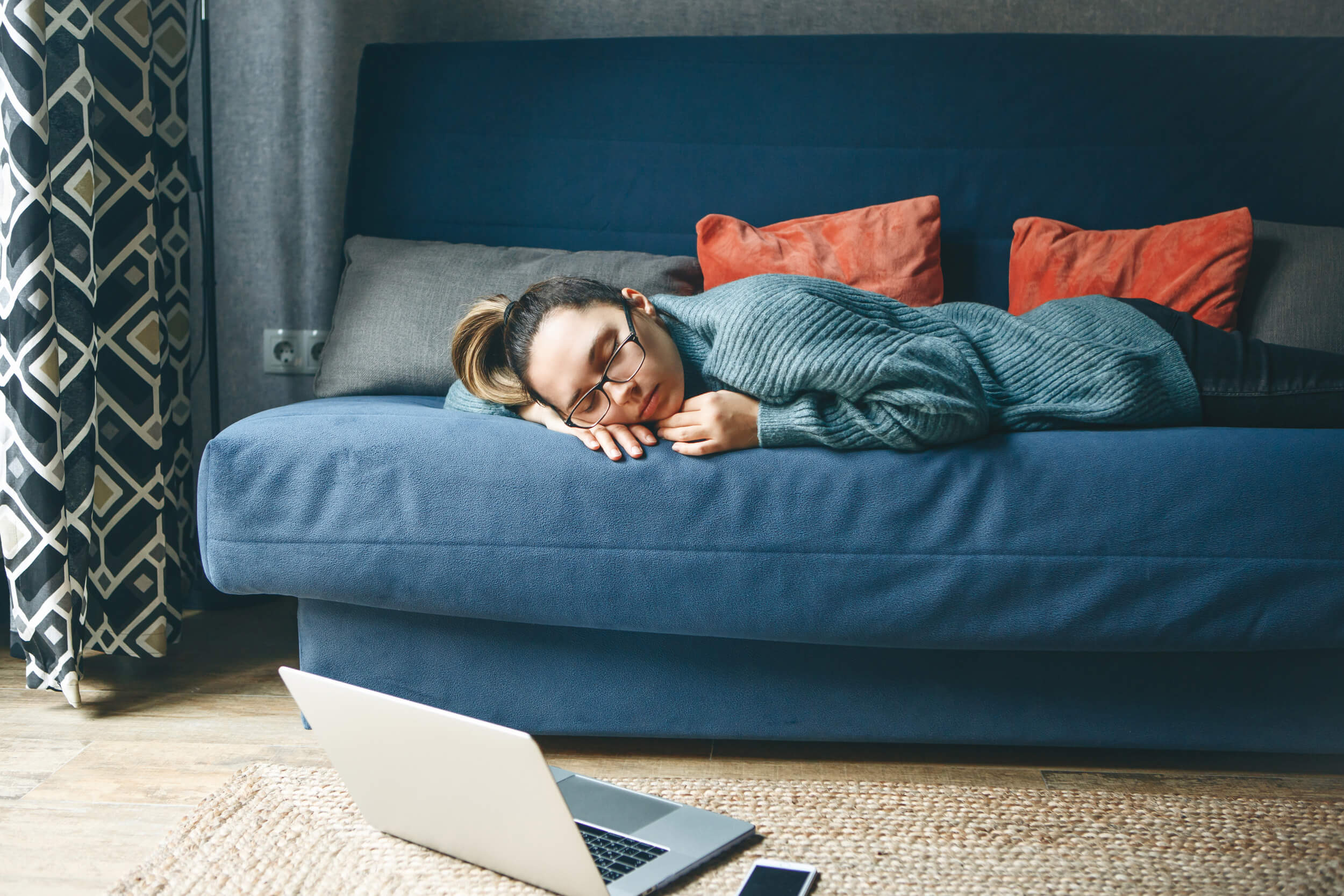Did you know that your blood sugar can go up while you’re sleeping—even if you haven’t had a bite to eat? That might sound strange, but it’s something that happens to a lot of people without them even knowing it.
Most folks think blood sugar only rises because of what we eat. But sleep plays a bigger role than most expect. In fact, how well you sleep, how long you sleep, and even what time you go to bed can all affect your blood sugar levels the next day.
This isn’t just about people with diabetes. The link between sleep and blood sugar can affect anyone, and the connection might surprise you. In the next few sections, we’ll look at the habits, patterns, and sleep behaviors that may be throwing your blood sugar off—especially at night.
What Happens to Blood Sugar While You Sleep?
During the night, your body doesn’t shut down—it stays busy. One of the things it does is raise your blood sugar slightly as part of your internal clock, also known as your circadian rhythm. This rise happens whether you’ve eaten or not and is completely normal.
There’s also something called the dawn phenomenon, where your body naturally releases more sugar into your blood in the early morning hours. It’s your body’s way of giving you a bit of energy to start the day. This can happen in both people with and without diabetes.
Most of the time, these nighttime and early-morning changes aren’t a problem. But if your sleep isn’t great, or if your body already struggles to manage sugar, these natural shifts can start causing real issues.
The connection between sleep and blood sugar starts here—with what your body does while you’re asleep, even before food or lifestyle come into the picture.
How Sleep Quality Influences Blood Sugar Levels
Not getting enough sleep doesn’t just make you tired. It can actually mess with how your body handles sugar.
Here’s how poor sleep starts to cause problems:
- Less sleep = more insulin resistance: Your body becomes less responsive to insulin, which makes it harder to keep your blood sugar steady.
- Tired nights = higher sugar the next day: Even one bad night of sleep can raise your blood sugar by the following morning.
- Broken sleep = less control: If you keep waking up at night, your body struggles to manage sugar properly while you rest.
The link between sleep and blood sugar is stronger than most people realize. Your body does a lot of its sugar-regulating work while you sleep—so when that rest is off, so is your blood sugar.
Why Does Poor Sleep Spike Blood Sugar?
Bad sleep doesn’t just leave you groggy—it can throw off your whole system. When you’re sleep-deprived, several things happen in the background that push your blood sugar up.
Here’s what goes wrong when you don’t get enough good sleep:
- Stress hormones go up – Cortisol rises when you’re sleep-deprived, and that hormone causes your body to release more sugar into your blood.
- Insulin doesn’t work as well – Without enough rest, your body becomes less sensitive to insulin, which means sugar stays in your blood longer.
- Growth hormone gets out of balance – This hormone helps regulate sugar while you sleep, but it’s thrown off when your sleep is poor.
- Inflammation rises – Your body produces more inflammation-related proteins like IL-6 and TNF-alpha, which make it harder for insulin to do its job.
It’s a full-body chain reaction—one night of poor sleep can make a big difference. When this happens regularly, your blood sugar can stay higher than it should.
Understanding how sleep and blood sugar work together can help you stay ahead of small problems before they turn into bigger ones.
Can High Blood Sugar Make It Harder to Sleep?
It works both ways. Not only can poor sleep affect your sugar levels, but high blood sugar can also mess with your sleep.
Here are a few signs your blood sugar might be keeping you up:
- Waking up often during the night
- Feeling sweaty or restless in bed
- Needing to pee more than usual
- Waking up feeling thirsty or dry-mouthed
When sugar stays high overnight, your body can’t relax the way it should. You might fall asleep just fine but wake up feeling like you barely rested.
Over time, this back-and-forth—poor sleep raising blood sugar, and high blood sugar causing poor sleep—can create a cycle that’s hard to break. But once you spot the pattern, it’s easier to work on both ends of it.
What About Low Blood Sugar at Night?
Sometimes blood sugar drops too low during sleep, which is known as nocturnal hypoglycemia. It’s more common in people with diabetes but can also happen if you’ve had a long gap between meals or did intense exercise before bed.
Here’s what you might notice:
- Sudden waking with a fast heartbeat
- Feeling shaky, sweaty, or confused
- Having bad dreams or night terrors
- Waking up tired or irritable
This drop in sugar can wake you up without warning. Even if you don’t remember waking, you might feel off the next day without knowing why.
Keeping a small snack before bed (if advised by your doctor) or adjusting your meal timing can sometimes help. Paying attention to these signs is key to stopping sleep issues tied to low sugar before they affect your nights too often.
Sleep Disorders That Affect Blood Sugar Regulation
Some sleep problems don’t just leave you tired—they mess with your blood sugar too.
Let’s look at two of the most common ones:
1. Obstructive Sleep Apnea (OSA)
This condition causes you to stop and start breathing throughout the night. Your body sees this as stress, which raises cortisol and blood sugar. OSA is closely tied to insulin resistance and often goes undiagnosed.
2. Chronic Insomnia or Sleep Loss
If you’re someone who just can’t sleep well—even without a clear reason—it still matters. Losing sleep over and over boosts stress levels and lowers your body’s ability to use insulin. That means more sugar stays in your blood longer.
If your sleep is poor and your sugar levels are off, a sleep disorder might be part of the picture. Getting help with your sleep could be a key step in managing your overall health—especially when it comes to your blood sugar.
Lifestyle Habits That Link Sleep and Sugar
Some everyday habits can quietly mess with both your sleep and your blood sugar—especially what you eat and drink at night.
Late-Night Eating
Eating too close to bedtime—especially high-carb meals or sugary snacks—can push your blood sugar up while you sleep. Your body has a harder time handling food late at night, which means sugar stays in your system longer.
Drinks That Disrupt Sleep
Both caffeine and alcohol can cause problems.
- Caffeine (like coffee, tea, or energy drinks) can keep you awake longer and reduce your deep sleep, which is when your body normally keeps blood sugar in check.
- Alcohol may help you fall asleep faster, but it often leads to more waking up through the night and messes with your sleep cycle.
Even small changes in these habits can lead to better control of sleep and blood sugar levels. What you do a few hours before bed really does matter.
Why Consistent Sleep Schedules Matter
Switching up your bedtime each night might not seem like a big deal—but it can throw your body off more than you think.
Going to bed and waking up around the same time every day helps keep your body clock steady. That means better sleep, better energy, and steadier blood sugar levels.
When your sleep schedule is all over the place, your blood sugar has a harder time staying balanced. Sticking to a regular routine is one of the simplest ways to improve both sleep and blood sugar without changing anything else.
Who’s Most at Risk from This Sleep–Blood Sugar Connection?
Some people feel the effects of poor sleep on blood sugar more than others. If you fall into one of these groups, it’s worth paying extra attention:
- People with prediabetes or type 2 diabetes – Already dealing with sugar control issues
- Shift workers – Irregular sleep throws off body rhythms
- Stressed individuals – High stress can raise cortisol, which affects both sleep and sugar
- Older adults – Sleep tends to get lighter with age, which can increase risk
Understanding where you fit helps you take steps before problems grow. The connection between sleep and blood sugar isn’t the same for everyone.
What You Can Do to Break the Cycle
Good news—there are small steps you can take to help your body reset and avoid the ups and downs of poor sleep and blood sugar spikes.
Try these habits that actually make a difference:
- Get 7 to 9 hours of sleep each night — no more guessing, make it a goal.
- Turn off screens at least 30 minutes before bed — blue light delays your body’s sleep signals.
- Skip caffeine and heavy meals in the evening — let your body wind down naturally.
- Exercise earlier in the day — helps use up sugar and supports better sleep later.
- If you have diabetes, consider a CGM — it can show you how your sugar reacts overnight.
Breaking the cycle doesn’t require big changes. It just starts with a few better habits that support healthy sleep and blood sugar balance.
Final Thoughts on the Sleep–Sugar Connection
It’s easy to focus only on food when thinking about blood sugar. But the way you sleep—and how often you get quality rest—can be just as important.
Small habits like staying up too late, tossing and turning, or skipping a proper bedtime routine can quietly raise your blood sugar over time.
Keeping both your sleep and blood sugar in check isn’t about being perfect. It’s about noticing the link, then building better habits one step at a time.
The more steady your sleep, the more steady your sugar. They really do go hand in hand.















